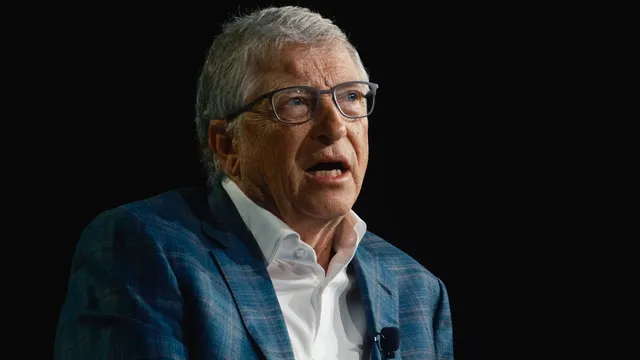
Bill Gates discusses wealth tax reform on Netflix series
2024-09-23 10:29- Bill Gates stated that billionaires would have significantly less wealth under a tax system he would design, suggesting they would possess about a third of their current fortunes.
- He advocated for a more progressive tax system and emphasized the importance of philanthropy among the ultra-wealthy to combat societal inequities.
- Gates' commitment to donating his wealth through the Bill & Melinda Gates Foundation and the Giving Pledge highlights a broader movement among billionaires to address wealth inequality.
Express your sentiment!
Insights
In a recent episode of the Netflix series, Bill Gates discussed his views on wealth and taxation, particularly focusing on the ultra-wealthy. He expressed that if he were to design the U.S. tax system, billionaires would possess significantly less wealth, suggesting they would have about a third of their current fortunes. Gates emphasized the absurdity of extreme wealth and advocated for a more progressive tax system that would not hinder innovation and economic incentives. He also expressed support for the estate tax and encouraged wealthy individuals to contribute more to society to combat inequality. During the conversation with Senator Bernie Sanders, Gates highlighted the importance of philanthropy, stating that billionaires should voluntarily give back to society rather than hoarding wealth. He noted that the existence of deprivation in a wealthy nation like the U.S. indicates that the social safety net requires better funding. Gates believes that wealth should be redistributed to address societal issues rather than being consumed by the wealthy. Gates has committed to donating the majority of his wealth to the Bill & Melinda Gates Foundation, which he co-founded in 2000 with his then-wife. The foundation focuses on global health, development, and gender equality, among other critical issues. Additionally, Gates is a co-founder of the Giving Pledge, an initiative encouraging billionaires to donate a significant portion of their fortunes. With over 2,700 billionaires globally, Gates' comments reflect a growing discourse on wealth inequality and the responsibilities of the ultra-rich. His insights contribute to ongoing discussions about tax reform and the role of philanthropy in addressing social challenges.
Contexts
Bill Gates recently discussed wealth tax reform in a Netflix series, highlighting the growing concern over economic inequality. This conversation comes in the context of his ongoing efforts to address global issues, including malnutrition, as evidenced by a report from the Bill and Melinda Gates Foundation revealing that over 400 million children worldwide suffer from malnutrition. Gates, alongside musician Jon Batiste, visited Nigeria to engage with local initiatives aimed at combating hunger, emphasizing the importance of child nutrition and the role of the arts in fostering empathy. Additionally, Gates has warned of the potential for future pandemics within the next 30 years, a sentiment echoed by infectious disease experts. They stress the inevitability of new diseases emerging, particularly zoonotic diseases that can be transmitted from animals to humans. This warning underscores the need for preparedness and proactive measures in public health, especially as society grapples with pandemic fatigue. The Netflix series also reflects a broader trend in media, where stories of crime and social issues are explored, similar to the recent success of the Menendez brothers' story. This series has sparked discussions about the ethics of storytelling and representation in media, paralleling Gates' advocacy for responsible wealth distribution and social responsibility. Overall, Gates' discussions on wealth tax reform are part of a larger narrative addressing pressing global challenges, including health crises and economic disparities.